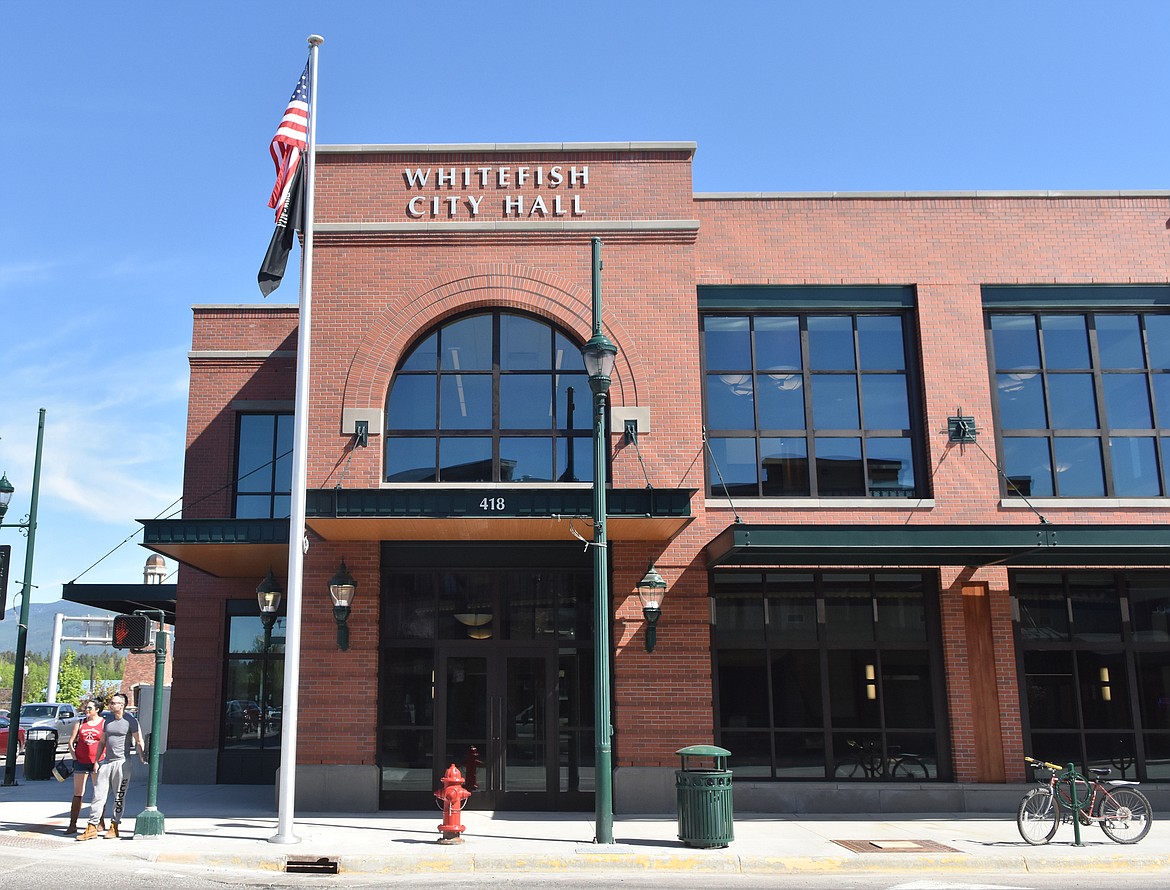Pandemic likely to impact city resources
The COVID-19 pandemic could result in a significant financial impact for the City of Whitefish.
Local businesses are seeing extraordinary financial impacts from closures, which will likely translate into a decrease in resort tax collections for the city. The city’s Parks and Recreation programs have been canceled or delayed, and impacts to sewer and water collections are also anticipated.
City Manager Dana Smith says the city is monitoring these three areas closely while preparing to respond as necessary.
“While the city is prepared to weather another recession, these immediate impacts will prove challenging,” Smith said.
A statewide stay-at-home order remains in place until at least April 24 in an effort to slow the spread of the virus. The order first issued by Gov. Steve Bullock beginning on March 28 allows for only the operation of essential businesses.
Thus, the city is expecting its resort tax collections to decrease during April and May when businesses report for the months of March and April. Whitefish’s resort tax is 3% collected on retail sales, lodging, at restaurants and for prepared food and alcoholic beverages.
A recent survey of Whitefish business owners by the Whitefish Convention and Visitors Bureau and the Whitefish Chamber of Commerce found that businesses are losing about $732,000 per day in March compared to last year.
Smith says if all businesses only report half of the typical March revenue and one-quarter of the April revenue, the city can still expect a shortage of about $265,000 in resort tax revenue.
“This I believe is a conservative estimate based on certain businesses still operating,” she said. “However, if the closures extend into the peak months, the impacts will be much greater.”
Funds from the resort tax go to three main areas — 25% goes to a property tax reduction for taxpayers in the city, 65% goes to the repair and improvement of streets, storm sewers and sidewalks, and 5% goes to funds for bicycle paths and other park capital improvements. In addition, revenue from the resort tax is used to fund the purchase of the Haskill Basin Conservation Easement to protect the city’s drinking water source.
The city in the fiscal year 2020 budget, which runs from July 1, 2019 to June 30, 2020, had anticipated about $4.2 million in resort tax collections.
A reduction in collections in the resort tax could have impacts in the future.
Smith says currently there are adequate funds set aside to complete the reconstruction of State Park Road. Construction on the second phase of the project is set to begin this spring at a cost of $2.74 million.
However, future road projects may have to be delayed to help cover any shortages in revenue, she notes.
The city currently is meeting its bond requirements to pay for the Haskill Basin Conservation Easement through funds generated by the resort tax, however, that could be an issue with extended loses and the city’s water fund would be required to make up an shortages for debt payments. The city does have adequate funds to do that, Smith notes.
Montana schools have been closed since March 16. As a result, the city Parks and Recreation Department closed its before and after school programs. It also canceled certain adult programs and delayed the opening of City Beach. All of these creates a decrease in revenue.
“Most of the employees that operate these programs are seasonal employees and have either been laid off temporarily or their start dates have been delayed,” Smith said. “Depending on the duration of these closures, certain spending may need to restricted to ensure staffing costs are covered.”
Currently, the city is not turning off water and sewer service or charging late fees for nonpayment during the COVID-19 crisis. While payment is still required, this does create a delay in payment.
Smith said the city has enough cash reserves to cover costs temporarily, but depending on the severity of the economic impacts it may need to consider additional bonding of funds to pay for the water treatment plant expansion project.
The city is expected this year to begin construction on a $9.68-million expansion of its water treatment plant and water system.
The city could also see costs as a result of responding to the pandemic, such as increased overtime, costs to provide housing for employees who are quarantined due to exposure while on duty, increased supply needs for personal protective equipment, and additional costs to support remote work and electronic City Council meetings.
“We are tracking all expenses related to our response so that we can request any funding that may come available including [from the Federal Emergency Management Agency],” Smith said.
The city last year created a financial plan for how it would respond during periods of economic decline.
The document plans for what the city may face in balancing its budget due to a list of possible changes, including a reduction in resort tax revenue, increases in delinquencies in utility payments and property tax collections, reduction in building permits, decreased in vestment earnings, reduction in donor contributions, reduction in grant opportunities, population changes and decreased cost of construction and borrowing.
The plan lists a dozen options available to assist in reducing costs and keeping taxes, assessments and fees steady during a recession or periods of economic downturn in order to balance the budget.

